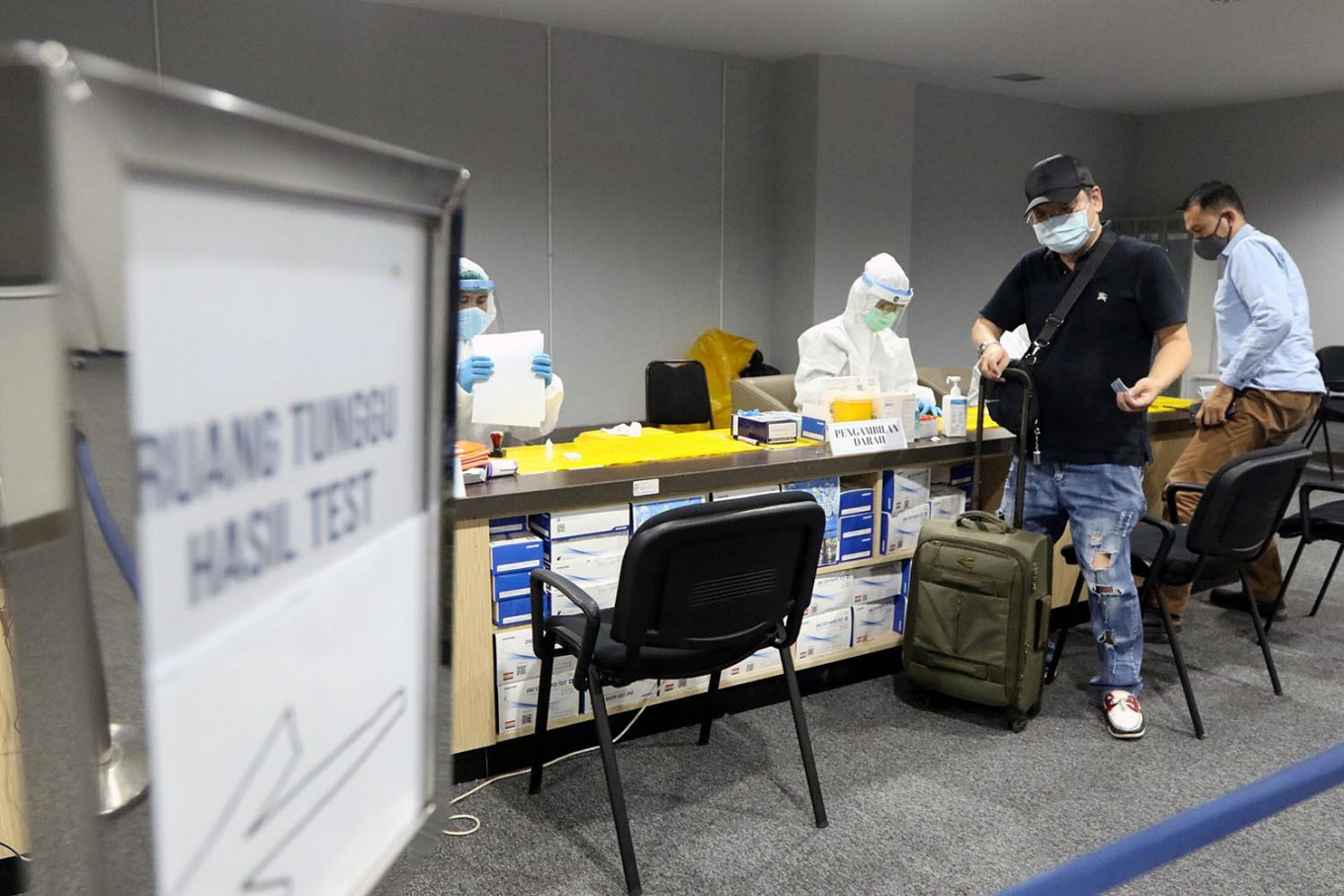Popular Reads
Top Results
Can't find what you're looking for?
View all search resultsPopular Reads
Top Results
Can't find what you're looking for?
View all search resultsGraft and pandemic travel
Even without corrupt officials, the country’s current regulations would be lax by international standards.
Change text size
Gift Premium Articles
to Anyone
The pandemic battle is likely to continue as other, potentially more contagious strains of the virus enter the country.
GISAID, a database of genetic data on influenza viruses, reported that Indonesia had detected one case each of B16172 and B16173, which are related to the B1617 variant first detected in India but have slightly different mutations.
Indonesia also recently reported a case of the B1351 variant, which was first detected in South Africa, and three new cases of B117, a variant first detected in the United Kingdom, making for a total of 13 UK variant cases.
While Indonesia has not seen a rapid escalation of cases and deaths as India has, we have good reason to worry about the government’s low standards of testing and quarantine at many of the country’s entry points.
A number of quarantine breaches by foreign visitors at Soekarno-Hatta International Airport in Banten and a recent scandal in which hundreds of people were tested with used antigen kits at Kualanamu International Airport in North Sumatra show that some officials and businesses are willing to compromise health protocols for profit.
But even without corruption, the country’s current regulations would be lax by international standards. People arriving from outside Indonesia are required to quarantine for five days, while the World Health Organization has recommended 10 to 14 days of quarantine under similar circumstances.
The five-day period seeks to account for the incubation period of the virus, or the time between exposure and the onset of symptoms. But while it is true that the incubation period averages five to six days, it can also last up to 14 days, and some infected people are contagious even before they show symptoms, according to the WHO.
As long as the government fails to combat endemic corruption among officials and improve regulations, it will be very hard to expect safe travel in Indonesia, especially as Idul Fitri approaches.
Vaccination remains inaccessible for the majority of the population, so domestic or international travel poses a high risk of transmission, which is not good for either travelers or people in the destination cities or countries.
Experts have cautioned that if this situation holds until Idul Fitri, which will come in the next two weeks, there will be spikes in cases and deaths.
If the country continues to perform poorly in protecting its entry points, other countries should take the greatest caution before agreeing to any travel arrangements with Indonesia.
To be fair, the government has made progress in the past few months. It has set a larger health budget to help control the virus and has made the country among first in Asia to receive vaccines and begin a nationwide inoculation program.
But the optimism caused by these improvements should be tempered by the fact that many more aspects are lacking in Indonesia’s fight against the coronavirus.
People should not take the vaccination campaign for granted and should know that it is still best to stay at home until the virus is under full control.










